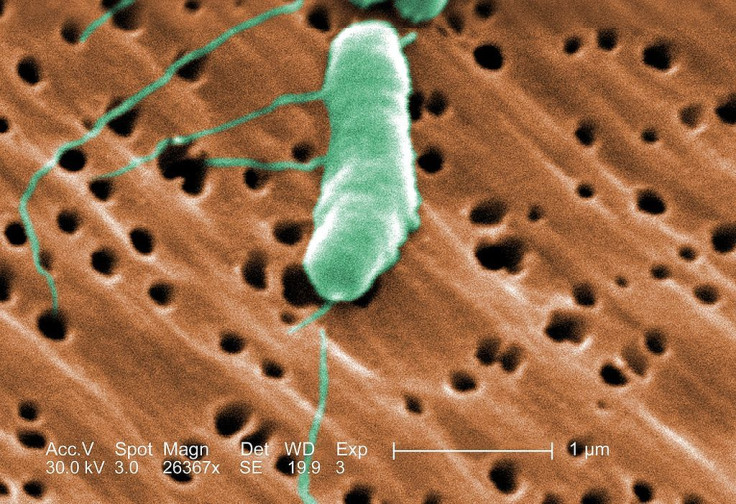Texas Man Infected With Flesh-Eating Bacteria After Beach Trip
KEY POINTS
- The man's wife shared the incident to warn the beachgoers about the infection
- Victim likely contracted infection via an open wound he got from golf cart accident
- Vibrio Vulnificus can also be acquired from eating raw seafood
A man from Conroe in Texas is being treated for a flesh-eating bacteria infection that he contracted after an accident on a family trip to the beach.
Robbin Kelly-Dun, the man's wife spoke up to warn the beachgoers and raise awareness about the disease.
Kelly-Dun was on a family trip to Crystal Beach in Galveston County, Texas with her family for her birthday on May 5 when her husband, Darrell, got into a golf cart accident that crushed his legs, KTRK reported. Speaking with the outlet, Kelly-Dunn told that her husband's wounds were still exposed when they got him admitted to a hospital.
"When someone comes into the emergency room with something like that, especially if it's on a beach area, you are supposed to clean the wounds because of possible infections," Kelly-Dunn, who happens to be a medical professional, told KTRK. "Nothing was done."
The man was eventually released from the hospital and taken back home but the family then decided to take him to a few other facilities. Darrell was admitted to another facility in The Woodlands and given antibiotics. According to the outlet, he was infected with a flesh-eating bacteria known as Vibrio Vulnificus.
Vibrio Vulnificus is commonly known to be contracted from eating raw or undercooked seafood such as oysters, but it can also be contracted through an open wound, the Centers for Disease Control and Prevention (CDC) said. According to the agency, many of those who contract Vibrio Vulnificus end up needing intensive care or having a limb amputation. About one in five end up losing their lives.
"Had I waited, he could have possibly lost his limb," Kelly-Dunn told the outlet.
With people vaccinated for COVID-19 and the weather getting warmer, more people are expected to go out and enjoy water activities at the beach or a lake. Experts have urged people to be careful while doing such activities, especially if they have open wounds.
"It's important to know if you're going to be traveling in this area and doing water sports and swimming or fishing, that this is a concern" Dr. Booker King, medical director of the UNC Jaycee Burn Center, told ABC11. "They tend to be in patients that were swimming or fishing and they either have a cut or overexposed area on their skin. And these bacteria get access into their deeper tissues."
Although "rare," such infections can happen, particularly in people with open wounds and among those who have underlying health conditions, Dr. Anthony Flores of the Pediatric Infectious Diseases at McGovern Medical School told KTRK.
"(S)ome people are more likely to get an infection and have severe complications — for example, people who have liver disease or take medicine that lowers the body's ability to fight germs," the CDC said.
To prevent a Vibrio wound infection, those who have wounds should stay away from saltwater or brackish water. This also includes less obvious wounds such as recent piercings, tattoos or surgery. It's important to cover the wound with a waterproof bandage if coming in contact with saltwater, brackish water, raw seafood and its juices. It is also recommended to wash the wound properly with soap and water if one does come in contact with any of the aforementioned things.

© Copyright IBTimes 2025. All rights reserved.






















